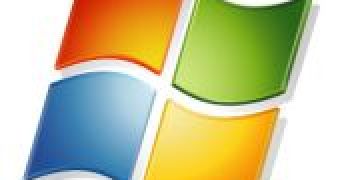With the advent of Microsoft’s Windows 7 and Windows Server 2008 R2 operating systems, the company also applauded its most green platforms to date. Over three months after the general availability of Windows 7, the Redmond company revealed that Stephen Berard, a senior program manager for the Windows Kernel Team, was the man that helmed efforts to make the OS as energy-efficient as possible. Berard was also the recipient of Microsoft's quarterly Environmental Action Award, for the features built into Windows Server 2008 R2 which contributed to servers becoming more energy efficient. According to Berard, Windows Server 2008 R2 is the more efficient and more manageable Windows OS ever produced by Microsoft.
“My main focus for Windows 7 was related to server power management. Our goal was to improve the overall power consumption of servers. We wanted to take the technologies we use in the mobile and laptop space and apply them to servers,” Berard said. “Using Windows Server 2008 R2, administrators are able to monitor energy consumption just like any other performance metric in Windows. This enables them to adjust power settings to suit the needs of their business. Further, using tools like System Center Operations Manager, administrators can manage and monitor literally hundreds of Windows Server systems across their organization.”
According to Berard, making Windows 7 more efficient involved not only tinkering under the hood of the operating system, but also working closely with hardware partners. The software-level green evolution introduced by Microsoft into the successors of Windows Vista and Windows Server 2008 R2 needed a foundation of hardware support, or it would simply not work.
“Our greatest challenge was gaining industry support for our feature among our server partners. In order to provide energy-consumption reporting, we needed support in hardware. Today there is a lot of focus on energy efficiency and green IT. Naturally, as a result, it's an area of competition. As a result, there were a lot of proprietary solutions in the market and little in the way of standards. What we needed to do was to strike a balance between what we deliver in Windows and what our partners could provide,” Berard said.
Energy efficiency is an extremely beneficial aspect of software and hardware for customers. Cutting down on the energy consumed does not only make companies greener, but beyond the ecological aspect, it also helps them reduce costs. Berard emphasized that Microsoft was not alone in boosting the energy efficiency in Windows 7 and Windows Server 2008 R2, and that the company could not have pulled it off without its hardware partners.
“We had to do a tremendous amount of coordination and evangelism in order to deliver our features. That required a huge amount of communication and coordination. Amazingly, we did the majority of this via teleconference using tools like Microsoft's Live Meeting rather than jumping on a plane to meet face-to-face. For me, it was an example of the team's dedication to our environmental goals,” Berard recalled.

 14 DAY TRIAL //
14 DAY TRIAL // 
